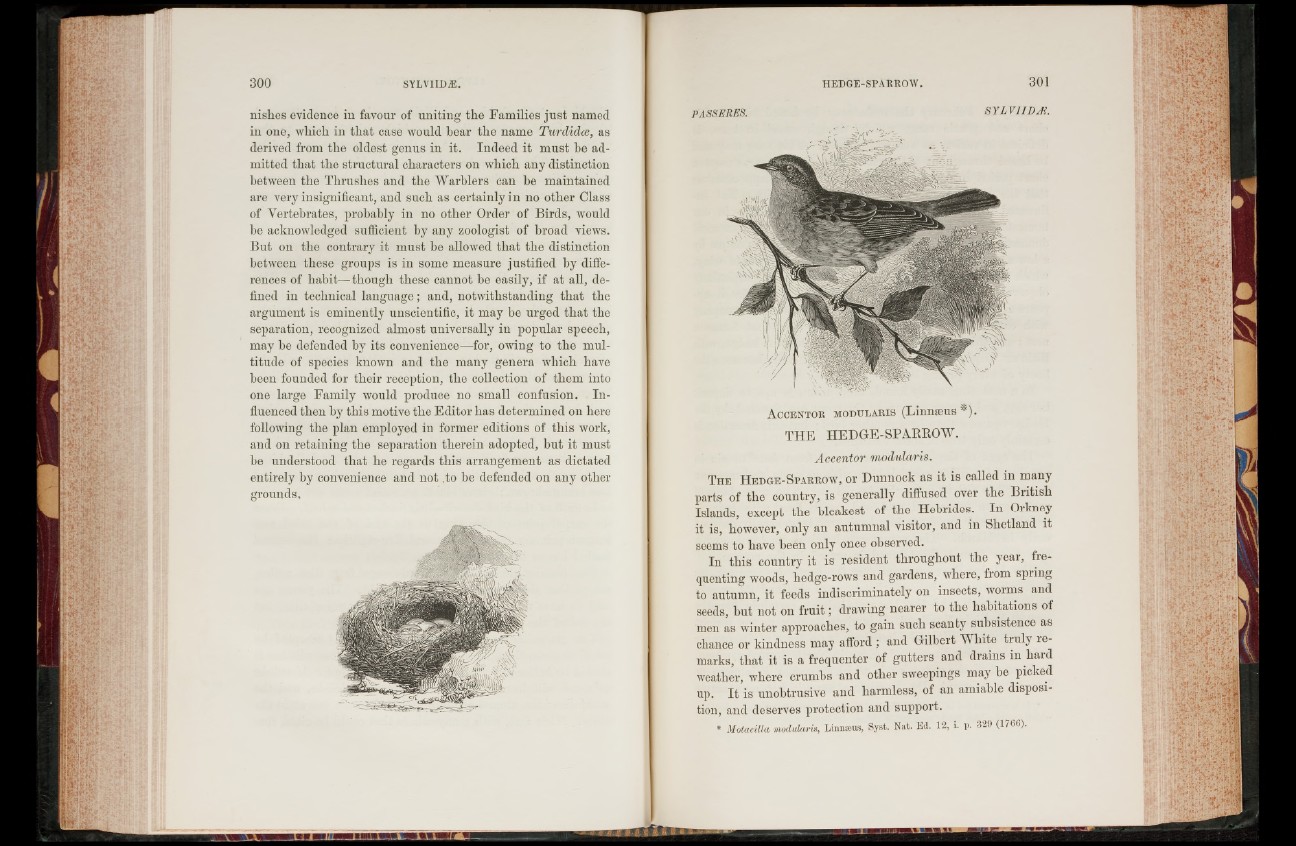
nislies evidence in favour of uniting the Families just named
in one, which in that case would hear the name Turdidce, as
derived from the oldest genus in it. Indeed it must he admitted
that the structural characters on which any distinction
between the Thrushes and the Warblers can he maintained
are very insignificant, and such as certainly in no other Class
of Vertebrates, probably in no other Order of Birds, would
be acknowledged sufficient by any zoologist of broad views.
But 011 the contrary it must he allowed that the distinction
between these groups is in some measure justified by differences
of habit—though these cannot be easily, if at all, defined
in technical language; and, notwithstanding that the
argument is eminently unscientific, it may he urged that the
separation, recognized almost universally in popular speech,
may be defended by its convenience—for, owing to the multitude
of species known and the many genera which have
been founded for their reception, the collection of them into
one large Family would produce no small confusion. In fluenced
then by this motive the Editor has determined on here
following the plan employed in former editions of this work,
and on retaining the separation therein adopted, but it must
he understood that he regards this arrangement as dictated
entirely by convenience and not .to he defended on any other
grounds,
A c c en t o r m o d u l a r is (Linnseus *).
THE HEDGE-SPARROW.
Accentor modularis.
T h e H e d g e - S pa r r ow , or Dunnock as it is called in many
parts of the country, is generally diffused over the British
Islands, except the bleakest of the Hebrides. In Oikney
it is, however, only an autumnal visitor, and in Shetland it
seems to have been only once observed.
In this country it is resident throughout the yeai, fie-
quenting woods, hedge-rows and gardens, where, from spiing
to autumn, it feeds indiscriminately on insects, worms and
seeds, but not on fru it; drawing nearer to the habitations of
men as winter approaches, to gain such scanty subsistence as
chance or kindness may afford ; and Gilbert White tiuly le-
marks, that it is a frequenter of gutters and drains in hard
weather, where crumbs and other sweepings may he picked
up. It is unobtrusive and harmless, of an amiable disposition,
and deserves protection and support.
* Motacilla modularis, Linnaeus, Syst. Nat. Ed. 12, i. p. 329 (1766).